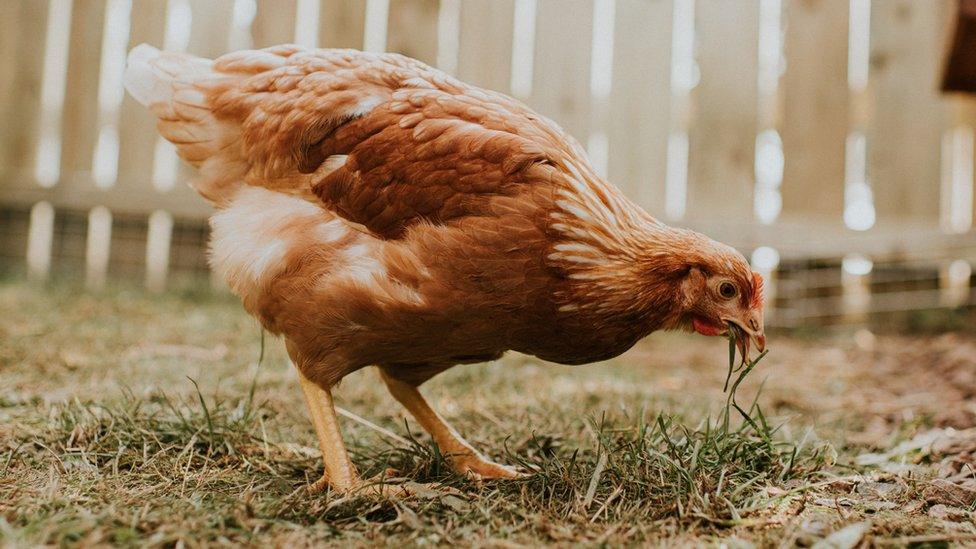Bird flu: Norfolk County Council's plea over 'unprecedented' cases
- Published
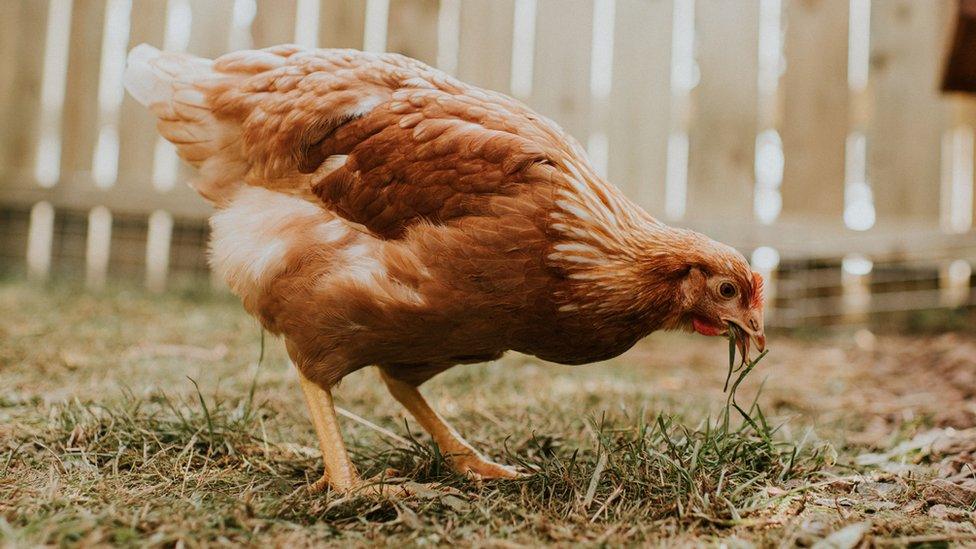
Avian flu is highly infectious in birds but does not affect humans
A council leader has called for the public to help limit the spread of bird flu in what he described as an "unprecedented" outbreak of the virus.
Norfolk has several outbreaks of the highly pathogenic avian influenza virus H5N1, which has led to thousands of fowl being culled.
County council leader, Andrew Proctor, said the authority was concerned the disease was "currently rife".
"To do nothing is not an option," he said.
The virus is highly contagious among birds, and spread by close contact with an infected bird, whether it is dead or alive.
Raising the issue as an item of urgent business at a meeting of the council's cabinet, Mr Proctor said the eastern region has 20% of the UK poultry flock.
He said there were six affected sites in Norfolk, four of which are in the Attleborough-Watton area, while Suffolk has six affected sites, with five near the Norfolk border, the Local Democracy Reporting Service said.
"To have this many cases at this time of year is unprecedented," he said.
"What I have mentioned is avian flu in commercial flocks and does not take into account any losses of wild birds coming in from the Broads and along the coast."
Mr Proctor called on the public to disinfect their footwear if they have been in areas filled with wild birds.
'Christmas geese'
"We have yet to see most of the migratory wildfowl which frequent Norfolk during the winter," he said.
"We have to do our bit to protect them as well as all domestic poultry.
"Heavy losses across all sectors would impact our economy and our biodiversity.
"Ninety per cent of Christmas geese are also found in Norfolk and, of the four largest flocks in Norfolk, there is only one left, so you can see the heavy toll this virus is having already."
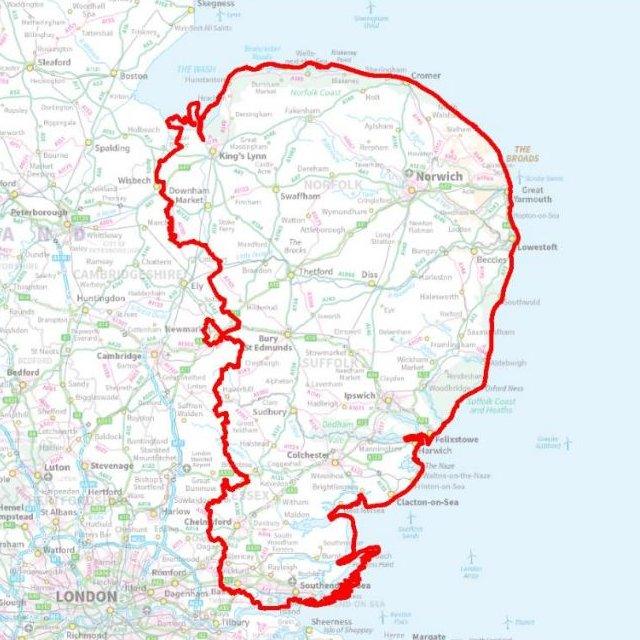
The AIPZ covers all of Norfolk and Suffolk and nine of the more easterly districts in Essex
Government vets identified, external two of the Attleborough outbreaks and one in Bury St Edmunds in Suffolk on Saturday.
An Avian Influenza Prevention Zone (AIPZ) in Norfolk, Suffolk and some of Essex has been put in place by the Department for Environment, Food and Rural Affairs (Defra) to try to limit infections.
Protection zones of 3km and surveillance zones of 10km, external have been set up around affected sites.
Defra said the UK Health Security Agency advised "the risk to public health from the virus is very low".

Find BBC News: East of England on Facebook, external, Instagram, external and Twitter, external. If you have a story suggestion email eastofenglandnews@bbc.co.uk, external
Related topics
- Published28 September 2022
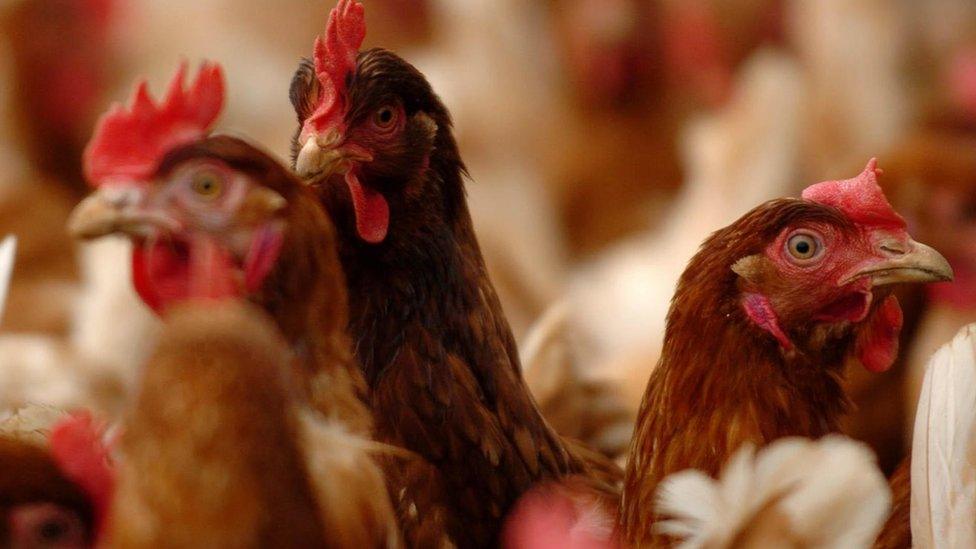
- Published27 September 2022
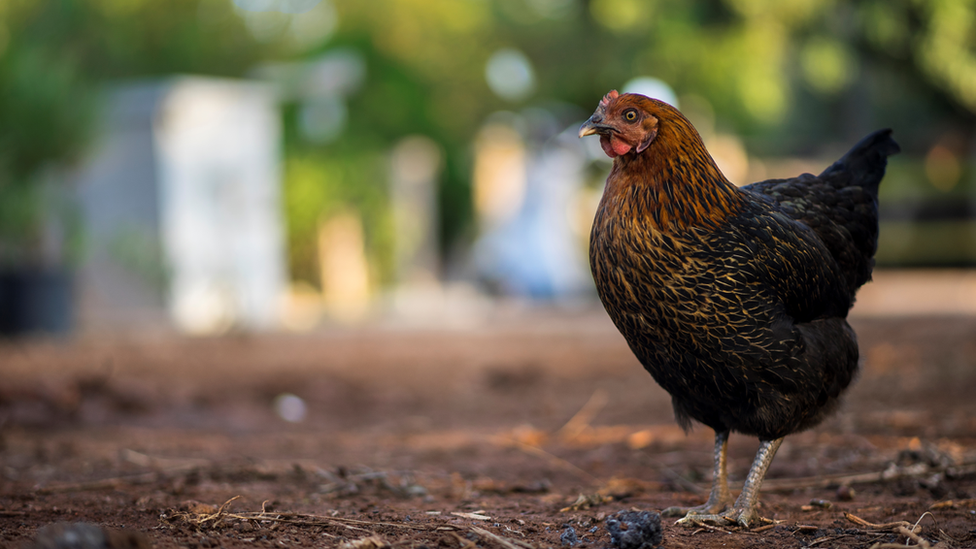
- Published26 September 2022

- Published31 August 2022
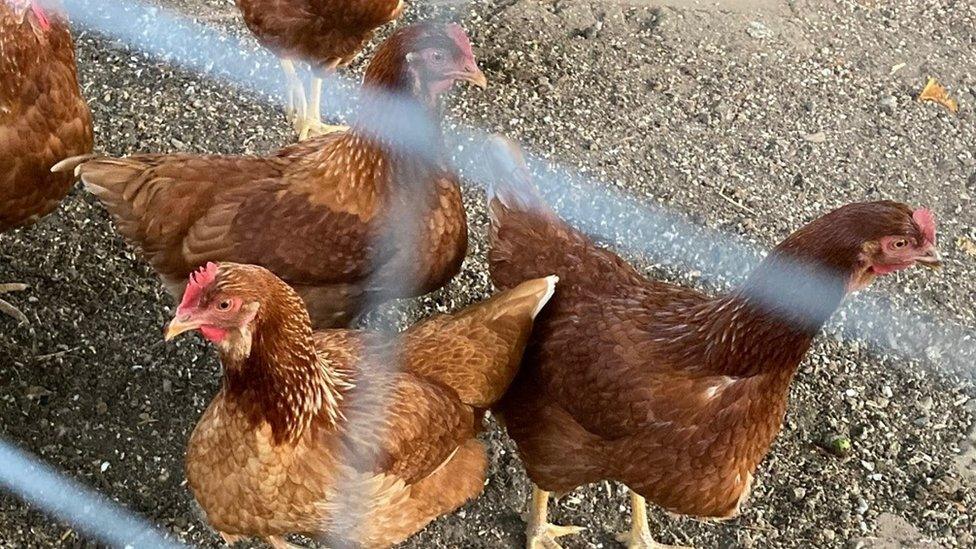
- Published22 August 2022

- Published30 December 2021

- Published22 November 2021

- Published21 November 2021
